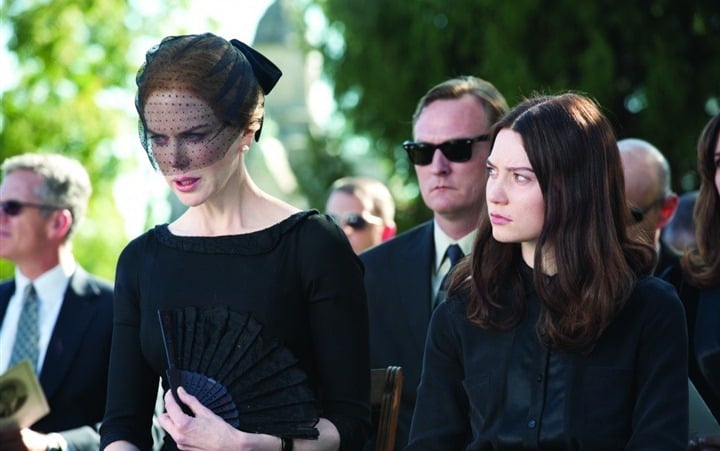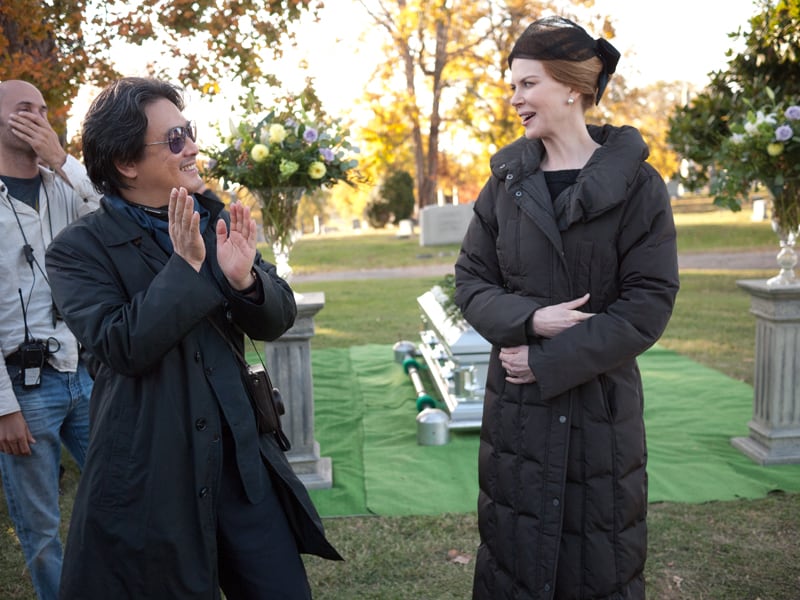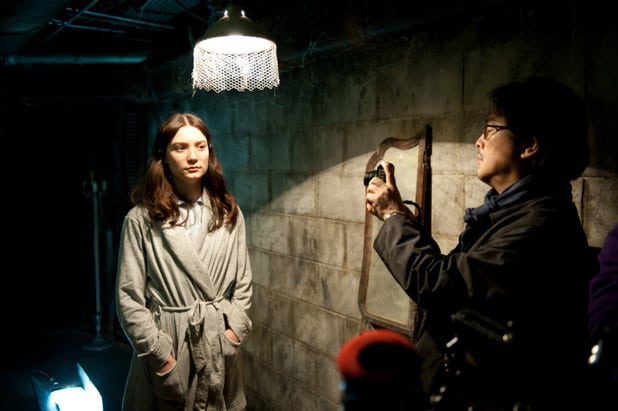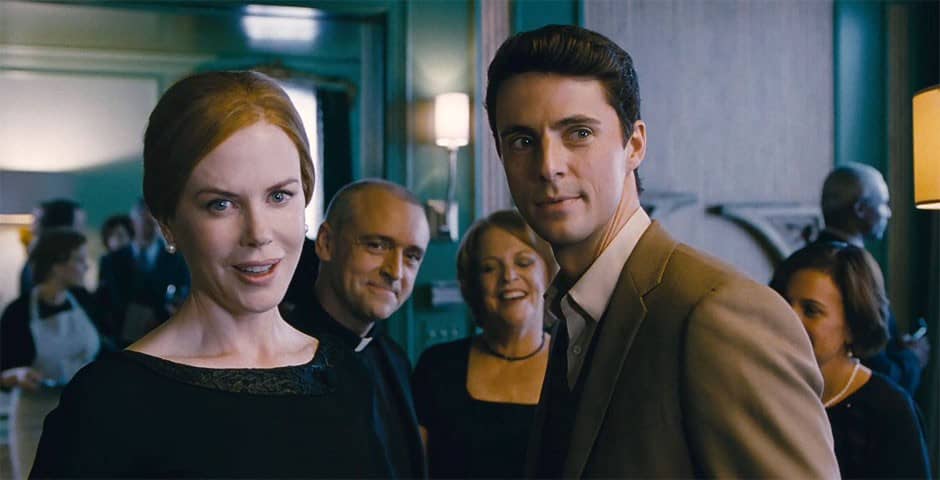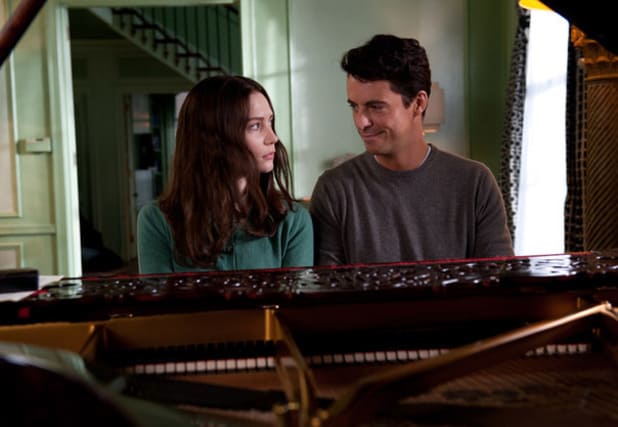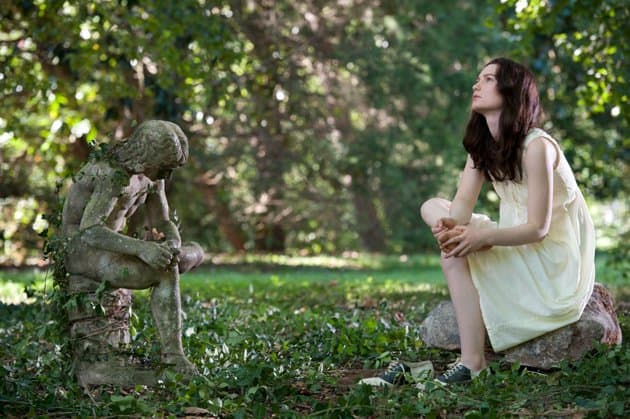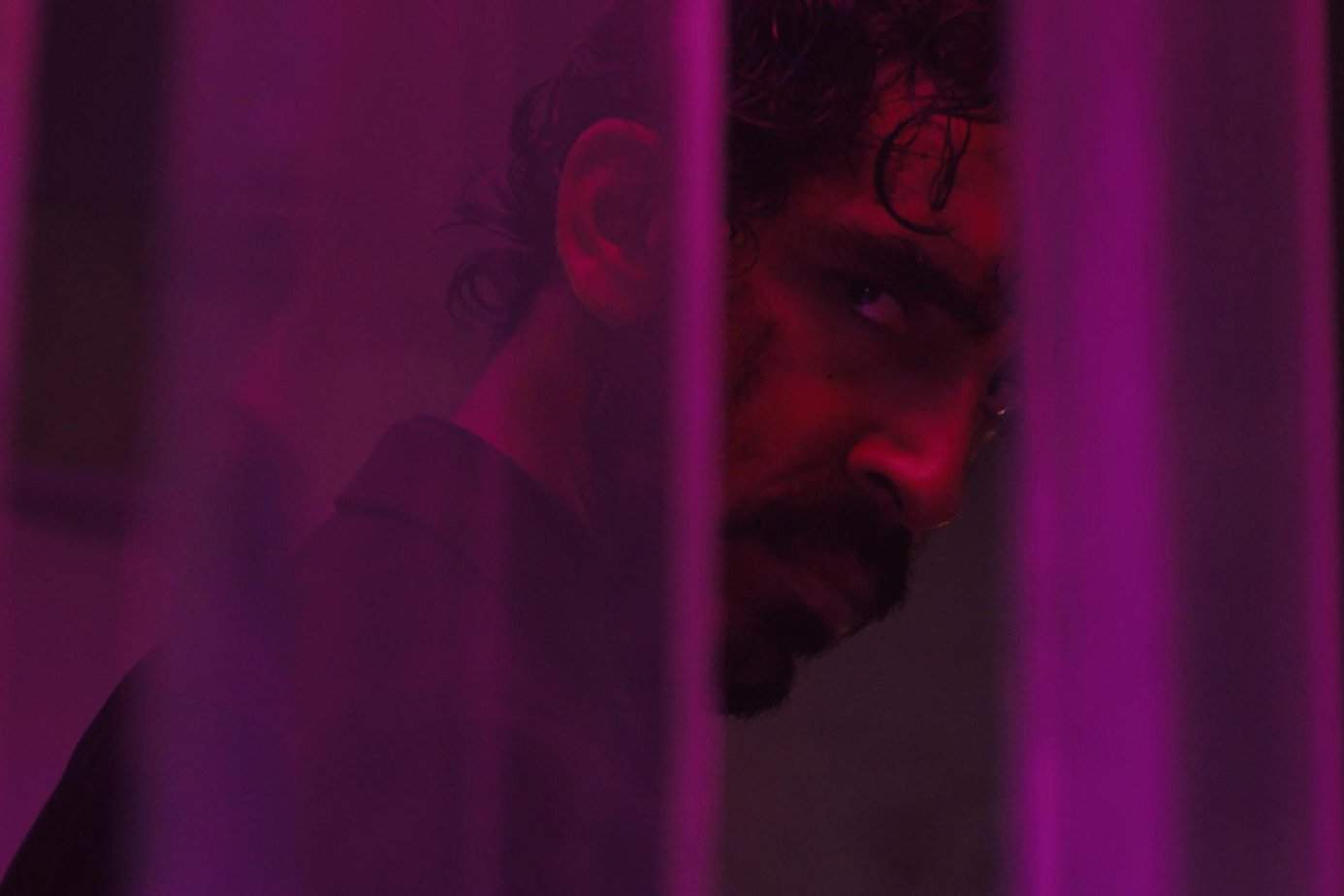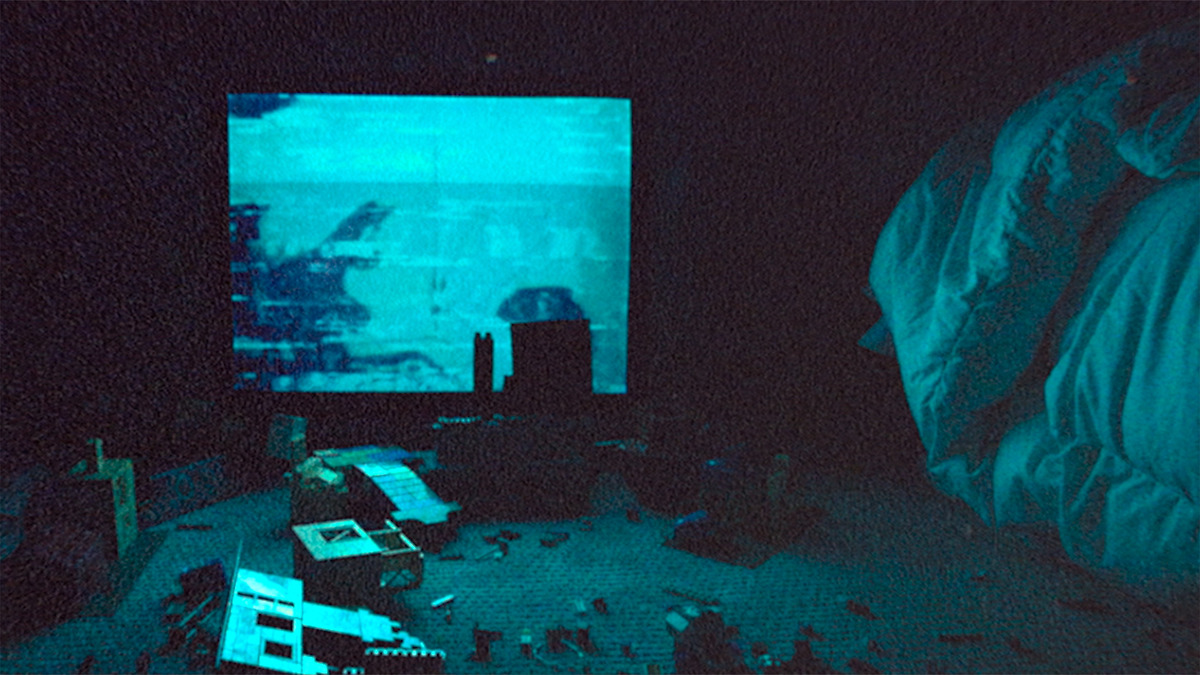
INTERVIEW: ‘STOKER’ Roundtable Interview with Chan-Wook Park
Stoker is Chan-wook Park’s American film debut. Destroy the Brain was fortunate enough to sit in on a roundtable interview with the director and his translator. Stoker stars Mia Wasikowska, Dermot Mulroney, Nicole Kidman and Matthew Goode. If you are in St. Louis, Stoker will be opening on March 15th at the Landmark Tivoli Theater.
Trailer
[youtube id=”JNpDG4WR_74″ width=”600″ height=”350″]
[Editor’s Note: Since this one of the first times we are publishing a roundtable interview, we have included all the questions asked with ours, the last question, highlighted. I have reworded all responses to make them sound like Mr. Park personally answered them instead of through his translator.]
Your film Stoker is being compared to being on par with the masterful director Alfred Hitchcock. How does the comparison make you feel and of his work, has any of any of it influenced you in your career and on the set of STOKER?
The film that made me decide to become a filmmaker in the first place is the film Vertigo. Vertigo, to me, is synonymous with Hitchcock. For me, Vertigo is Hitchcock’s representative work. When I first started out studying film, I drew a great influence from Hitchcock. Of course, when I became a filmmaker I’ve gone on my own path but certainly during the period of studying film I drew lots of inspiration from Hitchcock.
When in development did you come aboard and what was it about Wentworth Miller’s script that appealed to you enough to become your first English language film?
I entered after Wentworth had already finished the script and it was on the Black List., so I entered prior to the casting stage of development. The appeal that I had was it was a very quiet script in that it wasn’t so heavy on the dialogue, it only a small amount of characters inhabit this world and it already takes place in a few number of locations.
How was your collaborative experience working with English language actors for the first time?
The language barrier was something I was worried about at the beginning. After I started working with the actors the language barrier was something I was able to overcome easier than I would have thought. In working with a good translator and in the situation where myself and the actors are tentatively listening and focusing on each other’s work, you could easily forget that there was even a translator around and focus on what each other was saying.
Since this is your first American studio film, how does this experience differ from making films in Korea and was it a positive experience for you?
It wasn’t a positive or a negative experience coming into the US system and making a film in America. I can’t really evaluate if it was a positive or a negative experience because it’s just like a Korean coming onto American soil and complaining that it is raining. It’s something one can not do anything about.
Of course the experience was different than making films in Korea. The American studio (Fox Searchlight) would share a lot of their opinions with me and also require a lot of explanations. I didn’t find it an easy thing at all to express all thoughts behind every single element, idea or every directorial choice but at the end of the day after having experiencing the whole process, I thought it was a very productive process. In short, it wasn’t easy, but it was good.
Looking over your filmography of the Vengance trilogy and now Stoker, what about the darker stories interest you? Also, can you talk about your directing style which is full of movement, color and beautiful images and how that contract works so well, for you, with these darker stories.
Although I’ve led quite a peaceful life without there being any problems, I find it interesting and bewildering to find in my inner self that sometimes I find this desire for vengeance, feelings of jealousy or these other negative and darker emotions. This makes me interested in how this could happen. This could be why I keep making films that examine this phenomenon, to examine the darker side of the human condition in this way and when I’m making that suggestion if I create a film that is ugly and disgusting only, who would be interested in taking a look in such a study? It is only when a film is beautiful will I be able to attract attention to the subject and allows the subject to attract attention in a serious way. That is why I make the choice to present my films in this way.
When something is so dark is depicted in such a beautiful way, that is when you have irony and that’s when you are able to reveal and deal with the complexities of human nature or the human condition.
I wanted to ask about your work as a film critic. I’m wondering where you felt your expertise was as a critic being a student of film and what from this did you bring to the films you have made? Is this something you wanted to do?
I was a student of Philosophy but I believe these two questions are one in the same. The effect of majoring in Philosophy at the University and the effect it had on me as a filmmaker is that it made me very thorough. By thorough I mean in studying or examining subject matters rather than do a shallow examination of many subjects when I have one subject I look at it very thoroughly. That is the training I got from studying of Philosphy.
With your other works, particularly Oldboy and Joint Security Area, it seems that the mystery within each film remains a mystery until the very end of the film. Was there a reason the mystery was revealed in the beginning of the third act of Stoker more than the other ones?
In Stoker, some mysteries are revealed at the beginning of the third act but some mysteries still remain mysteries until the end. The mystery of Uncle Charlie is revealed at the beginning of the third act but the mystery of India remains there until the end. The mystery of India, the question of ‘Is Evil herditary or is it something nutured?’, the question of nature versus nuture. The question of what is she going to do with her mother and also the question of what’s in store for India in her future. There is a small clue which might help answer some of these questions. It is the last shot of the film. It is there we realize this flower which we simply thought was red was actually white to begin with. But her flesh and blood has turned it red.
Is it true that you turned down the Evil Dead and if so, why?
I cannot really confirm or deny because I don’t feel it is free for discussion.
The most memorable moment in Stoker was the four-handed piano duet between the two leads. What was going on in that scene? Was it difficult to film and was it a piece that was written for one player to reach over his partner’s hand like that?
I worked with the great Philip Glass and went into the process thinking ‘Well, no matter how difficult the process it might turn out to be, I’m happy I’m doing this with Philip Glass.’ During my first meeting with Philip Glass he asked me ‘What is the nature of this theme, this piano duet?’ I answered ‘It’s basically sex between the two characters’. This prompted Philip to share a story. There was a foreign piece that Philip Glass had written before and his good friends played this piece and they were a married couple. The husband would pull one hand away and put it around his wife and would play it just like how Uncle Charlie does in the film. This story prompted me to make a revision to the script so it can be played this way. I very much enjoyed the collaborative process with Philip in, essentially, creating the piece for the film as it was the most fun part of making the film.
How much of a role did you have in casting the principal actors and were you familiar with Matthew Goode in his role in Watchmen before meeting him?
In the casting process I, of course, was not alone in the process. I was playing an active role in every stage of casting and in fact it was my choice to cast Matthew, Mia and Nicole. I was familiar with Matthew from A Single Man and I had seen Watchmen but I didn’t think of Matthew Goode right away when I was casting Uncle Charlie. It was when I saw Match Point and I felt that there was a moment of discovery when I saw Matthew Goode’s performance in Woody Allen’s film. That’s when I realized that’s the same actor that was in A Single Man and Watchmen. I felt Matthew was perfect for creating a very complex character that is Uncle Charlie.
DTB: Stoker is the first feature film that you didn’t originally write. Was it more difficult or more easier to make a film that wasn’t originally written by you and did you have any issues injecting your own style when adapting the screenplay?
There are two aspects to this. First, Wentworth Miller’s script, I found to be a lot of room for any director to come in and transform it into his or her own work. Second of all, taking a script that someone else wrote and turning that into a film didn’t feel fundamentally different than taking a source material, like a novel or graphic novel, and adapting it into a film. I treated it pretty much the same way. I took Wentworth’s script as a starting point and went through the process of tailoring it to be my own film

